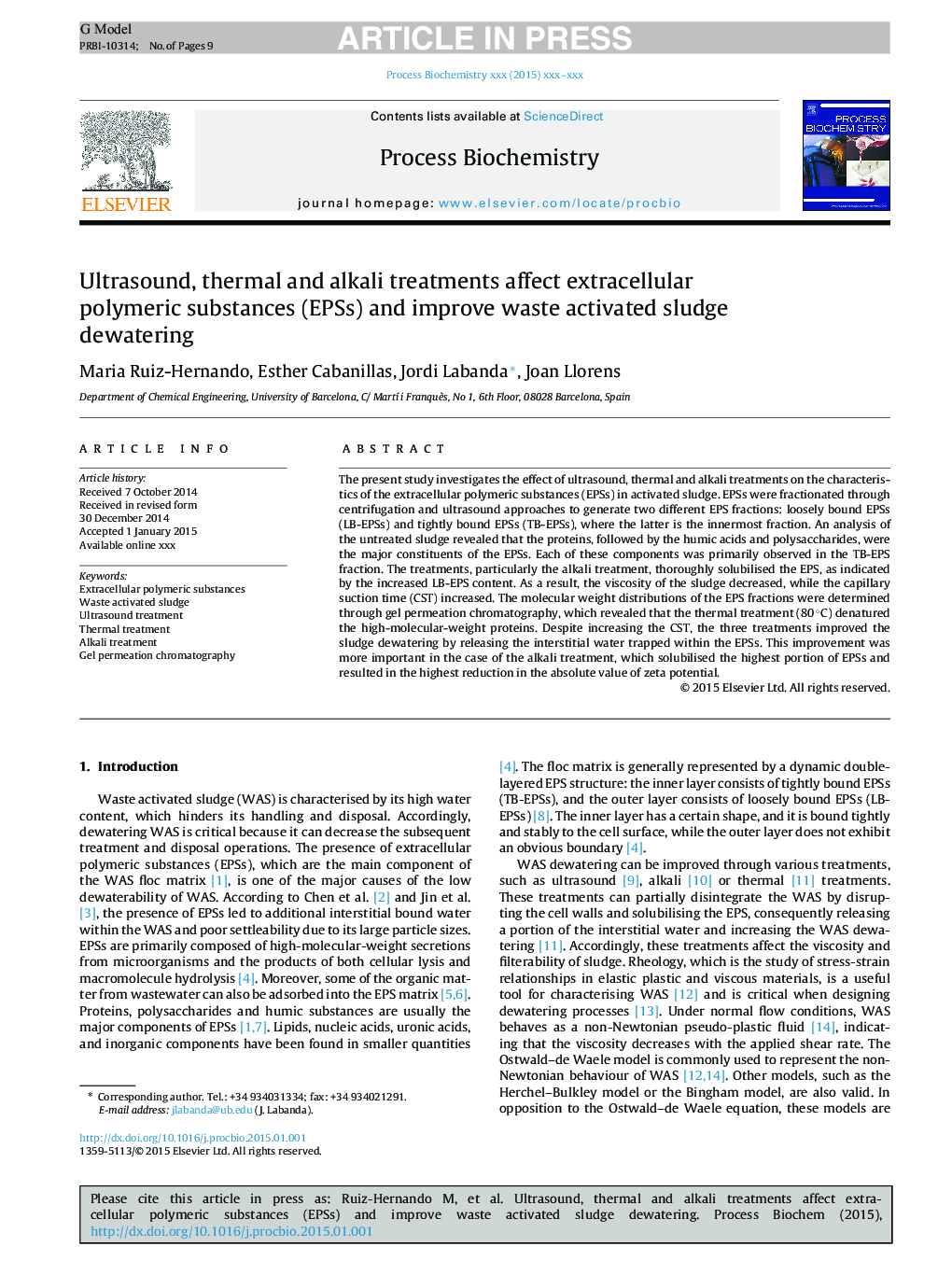| کد مقاله | کد نشریه | سال انتشار | مقاله انگلیسی | نسخه تمام متن |
|---|---|---|---|---|
| 10235351 | 45029 | 2015 | 9 صفحه PDF | دانلود رایگان |
عنوان انگلیسی مقاله ISI
Ultrasound, thermal and alkali treatments affect extracellular polymeric substances (EPSs) and improve waste activated sludge dewatering
ترجمه فارسی عنوان
درمان های سونوگرافی، حرارتی و قلیایی بر روی مواد پلیمری خارج سلولی تاثیر می گذارند و باعث کاهش آلودگی لجن فعال می شود
دانلود مقاله + سفارش ترجمه
دانلود مقاله ISI انگلیسی
رایگان برای ایرانیان
کلمات کلیدی
مواد پلیمری غیر سلولی، لجن فعال زباله، درمان اولتراسوند، عملیات حرارتی، درمان قلیایی، کروماتوگرافی نفوذ ژل،
موضوعات مرتبط
مهندسی و علوم پایه
مهندسی شیمی
بیو مهندسی (مهندسی زیستی)
چکیده انگلیسی
The present study investigates the effect of ultrasound, thermal and alkali treatments on the characteristics of the extracellular polymeric substances (EPSs) in activated sludge. EPSs were fractionated through centrifugation and ultrasound approaches to generate two different EPS fractions: loosely bound EPSs (LB-EPSs) and tightly bound EPSs (TB-EPSs), where the latter is the innermost fraction. An analysis of the untreated sludge revealed that the proteins, followed by the humic acids and polysaccharides, were the major constituents of the EPSs. Each of these components was primarily observed in the TB-EPS fraction. The treatments, particularly the alkali treatment, thoroughly solubilised the EPS, as indicated by the increased LB-EPS content. As a result, the viscosity of the sludge decreased, while the capillary suction time (CST) increased. The molecular weight distributions of the EPS fractions were determined through gel permeation chromatography, which revealed that the thermal treatment (80 °C) denatured the high-molecular-weight proteins. Despite increasing the CST, the three treatments improved the sludge dewatering by releasing the interstitial water trapped within the EPSs. This improvement was more important in the case of the alkali treatment, which solubilised the highest portion of EPSs and resulted in the highest reduction in the absolute value of zeta potential.
ناشر
Database: Elsevier - ScienceDirect (ساینس دایرکت)
Journal: Process Biochemistry - Volume 50, Issue 3, March 2015, Pages 438-446
Journal: Process Biochemistry - Volume 50, Issue 3, March 2015, Pages 438-446
نویسندگان
Maria Ruiz-Hernando, Esther Cabanillas, Jordi Labanda, Joan Llorens,
